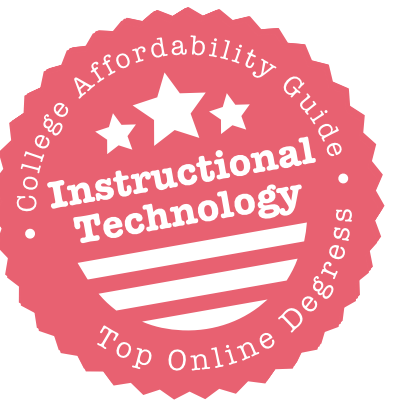2025 Top Online Schools for Instructional Technology
Scroll down to see the top not-for-profit colleges offering instructional technology degrees online.
 Want to see the most affordable Instructional Technology degrees? View them here
Want to see the most affordable Instructional Technology degrees? View them here

